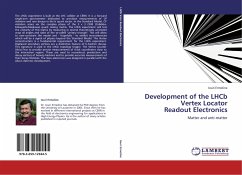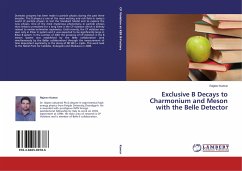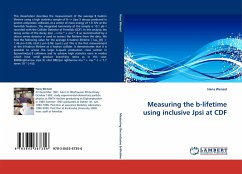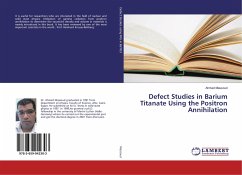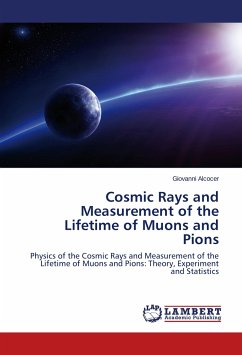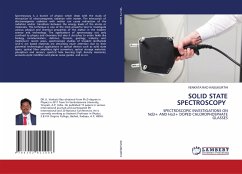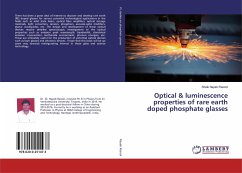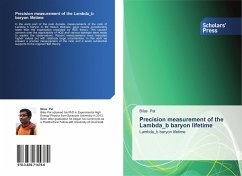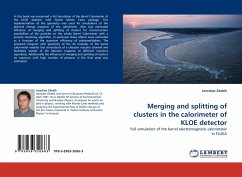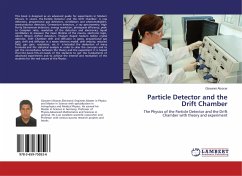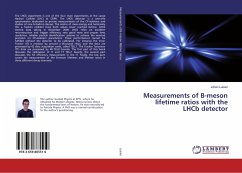
Measurements of B-meson lifetime ratios with the LHCb detector
Versandkostenfrei!
Versandfertig in 6-10 Tagen
47,99 €
inkl. MwSt.

PAYBACK Punkte
24 °P sammeln!
The LHCb experiment is one of the four main experiments at the Large Hadron Collider (LHC) at CERN. The LHCb detector is a one-arm spectrometer dedicated to precise measurements of the CP-violation and studies of rare b-hadron decays. The centre of mass energy and luminosity (for a hadron collider) have both values never reached before. LHCb started data taking in November 2009. LHCb relies on excellent reconstruction and trigger efficiency, very good mass and proper time resolution, reliable particle identification systems to achieve the wanted precision on CP-violation parameters. These perf...
The LHCb experiment is one of the four main experiments at the Large Hadron Collider (LHC) at CERN. The LHCb detector is a one-arm spectrometer dedicated to precise measurements of the CP-violation and studies of rare b-hadron decays. The centre of mass energy and luminosity (for a hadron collider) have both values never reached before. LHCb started data taking in November 2009. LHCb relies on excellent reconstruction and trigger efficiency, very good mass and proper time resolution, reliable particle identification systems to achieve the wanted precision on CP-violation parameters. These performances cannot be fulfilled without the detector to be calibrated. For instance, the Inner Tracker (IT) is readout by around a thousand chips, and the data are processed by 42 data acquisition cards, called TELL1. The Tracker Turicensis (TT) data are processed by 48 TELL1 boards. The first part of this book discusses the calibration of IT and TT TELL1 boards, the second part discusses the hit efficiency measurement in the IT. Finally, the last part covers the measurement of the B-meson lifetimes and lifetime ratios in three different decay channels.



